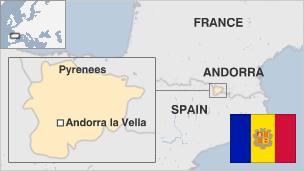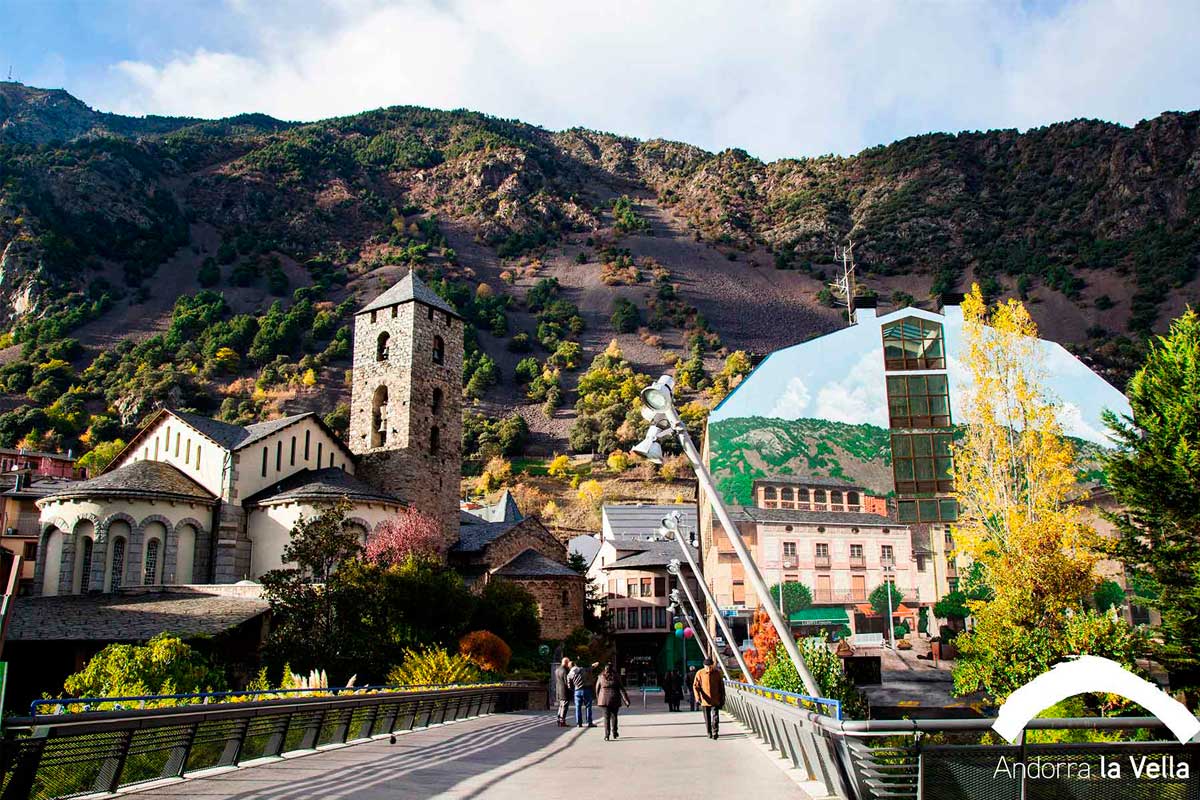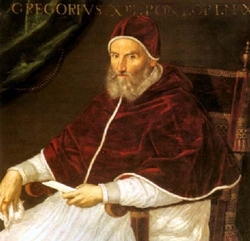If you define the end of a war as being when all parties have signed the peace treaty, then World War I didn't end until 1958 when the small European state of Andorra finally made their peace with Imperial Germany.
So Andorra continued in a state of belligerence against Germany. They didn't fight in WWII, maybe because they were still busy 'fighting' World War One, or perhaps because they realized they didn't have a standing army, so what was the point of alienating anyone? This last theory seems more plausible, as Andorra served as an important smuggling route through France and Spain during the war.
 |
| There it is! |
'Where is Andorra?' you ask. Well, Andorra is a teeny-tiny, blink and you'll miss it, doesn't even have its own airport, country in Europe nestled between France and Spain. The entire country is less than 500 square kilometers, and home to only 85,000 people. For reference, that's significantly less than the least populous US state, which is Wyoming with 585,501 people.
Now that we have that established, let's talk about WWI. So, early 1900s, everyone's declaring war on somebody. Germany has declared war on France, France has declared war on Germany, Austria has declared war on Russia, &c, &c. WWI was a mess. So, not wanting to feel left out, the tiny mountainous nation of Andorra decides that they want to hang out with the cool kids too, and declare war on Imperial Germany.
Unfortunately, no one really noticed, because Andorra didn't actually send any soldiers to fight the Germans. The declaration of war was more of symbolic moral stand than anything. Of course, that might also have been because Andorra did not, and still doesn't, have a standing army.
Despite the lack of Andorran forces, Imperial Germany lost the war. But, when it came time for everyone to settle down and sign the Treaty of Versailles, Andorra wasn't there, because someone forgot to invite them. Which, honestly, rude.
 |
| Modern Andorra |
WWII ends, and everyone goes home, Russia's being a bit of a dick, but other than that Europe is pretty peaceful. Except for Andorra, who is still, technically, at war with Imperial Germany, a country which no longer exists. Where they didn't actually have an army, there wasn't any bloodshed going on, so I imagine this 'war' mostly consisted of the older generations grumpily complaining about the Germans, while everyone else forgot they were at war.
Finally, in 1958 Andorra finally made its peace with Germany, and WWI was officially over for everyone.
Sources



